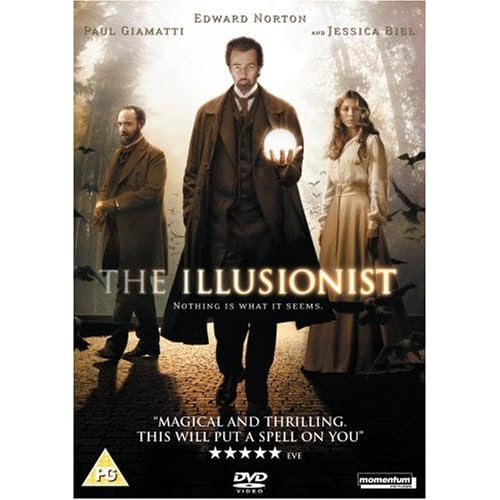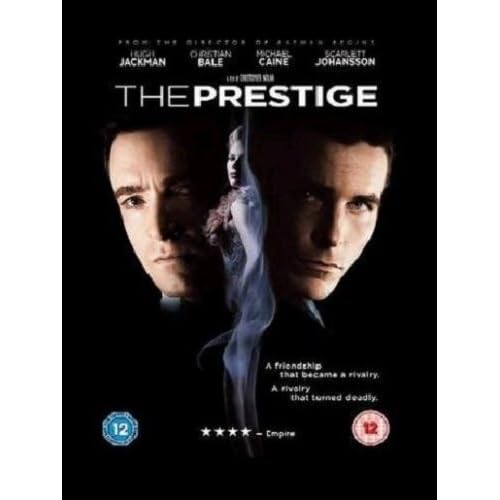In addition to my previous 5 childrens/YA novel analysis I've got a copy of Wolf Brother to have a look at - I've loved these, and am awaiting the fourth in the series as we speak (now that Potter is out the way).

Michelle Paver's Wolf Brother has received tremendous praise for its ability to draw the reader into an ancient world that, unlike Potter, is far less familiar - admittedly Witches and Wizards isn't that familiar to any of us over the age of 11, but I'm making a point about the world as a whole here, cut me some slack. Not only does Paver master a cracking pace that is vivid, colourful and evocative of its particular time and place (in a way that Rowling has never been able to master) which is similarly evoked by Pullman in His Dark Materials, an abstinence from weak adverbage, but she also takes it further into the alternating pov of Torak (boy) and Wolf (wolf), suitably simplifying her language to fit the pov character.
Let's have a look at some of the elements:
Torak woke with a jolt from a sleep he'd never meant to have.
First off she starts the book after the event. The inciting incident has already occurred - Torak and his father have already been attacked by the demon-possessed bear - and we are thrust into the night-time forest of Torak's world along with him, a terrified boy whose father now lies dying.
It's an interesting way to start - avoiding a fight - but we, the reader, has to realise this significance. What do we learn from the actual attack itself? Very little. Also, by holding off the bear attack, and having to deal immediately with why and how it disappears for a time the reader begins without seeing this terrible creature, and is in perpetual suspense, along with Torak, as to what it really is and when it will come back.
So we are allowed to empathise with Torak immediately, not confused or thrown about in the melee, but give the opportunity to connect with a frightened boy.
And the way she does that is to set the scene and how he feels:
The fire had burned low. He crouched in the fragile shell of light and peered into the looming blackness of the Forest. He couldn't see anything. Couldn't hear anything. Had it come back? Was it out there now, watching him with its hot, murderous eyes?
He felt hollow and cold. He knew that he badly needed food, and that his arm hurt, and his eyes were scratchy with tiredness, but he couldn't really feel it. All night he'd guarded the wreck of the spruce bough shelter, and watched his father bleed. How could this be happening?
She moves her description back in time, slips in the reference to
all night, before we reach the next paragraph in which she draws us back in time further to the day before when they'd pitched their tent. But she doesn't linger on describing how that happened. It is enough that we are told, and then it is straight into her
telling us that the
forest exploded. Ravens screamed.
Pines cracked. Two short paragraphs to describe the mayhem of the attack and then back to present.
And these two paragraphs highlight the confusion that new writers have over differentiating between
show and tell. This is in essence a flashback, even though the tense remains in the past tense throughout, and Paver doesn't fall upon
he had or
he had done etc. And it is the fact that we've moved back in time that lends readers' minds to think she is simply telling us what happened.
Take those short lines again:
Then the forest exploded. Ravens screamed. Pines cracked. Paver is choosing her words carefully, as well as setting up a rhythm with her writing she is choosing punchy, evocative descriptions that take away the need to expressly say action for action what the characters involved did or thought. Swift pace is maintained with these punchy sentences and the rhythmical repetition.
To bring us back to the present, Paver links in the end of the attack:
Then it was gone, melting into the Forest as silently as mist. with Torak's present concern:
But what kind of bear stalks men...She doesn't waste time telling us Torak is thinking that. Every line so far, though 3rd person pov, has been from Torak's pov.
Next we move into the relationship between Torak and his father, and how Torak feels about tending to his father's wounds, worrying over his father's life. We learn of the nature of these people by the manner in which they relate and how Torak:
tried to be practical: to be a man instead of a boy. And throughout, Paver is evoking feeling through action:
... fumbling for his medicine pouch with his freehand... he dug his thumbnail into the flesh. It hurt. He forced himself to concentrate on that. Every moment something is said by his father, Paver brings it back to how that makes Torak feel.
The discussion between father and son is swift, but then we reach a moment of tension that Paver relates to the reader effectively through broken paragraphs rather than merely short sentences. This gives the reader the sense of anticipation, and helps to break up Torak's actions, as if a new paragraph is started every time Torak looks in a new direction or realises something new with his senses:
'Fa, please. Don't-'
In the Forest, a twig snapped.
Torak spun round.
The darkness was absolute. Everywhere he looked the shadows were bear-shaped.
No wind.
No birdsong.
Just the crackle of the fire and the thud of his heart. The Forest itself was holding its breath.
By doing this the reader feels as if they are taking many breaths, and it helps to move them quickly through the narrative.
Pace is kept up by shortened sentences, and when she dallies it is only to narrate Torak's thoughts and feelings - rarely description of actions and even rarer on locations.
Now then, amidst all this we get the back story of this dangerous beast - the antagonist - Paver has chosen to give Torak's father certain abilities (inherent and taught but not yet active in Torak himself) and knowledge so that we, along with Torak, may learn part of this knowledge. This avoids on-the-nose dialogue whereby the narrator attempts to impart knowledge to the reader as if the character is musing it all to themselves, or, as I found in The Trolltooth Wars (Steve Jackson), simply
telling the reader the history of the thing, and pulling us out of the forward movement of the narrative (trust me - don't read The Trolltooth Wars... I don't recommend it to anyone over the age of 9)
As Paver gives us explanation of Torak's situation through the dialogue she sets up the plot's quest - the get the mountain or die trying. The timelock situation is setup, for Torak must reach the mountain before
the red eye is highest in the night sky. He has one moon in which to achieve his goal.
Explanation of the strange/unknownThe Death Journey is introduced on page 3, but without explanation. We can guess by its name and Torak's reaction that his father is preparing to die, and we can guess that there is a ritual involved with it, but we are given no more details until later, when Paver will
show us. For the moment it is merely acting to flesh out the world. It isn't until page 7 when we are
shown Torak carrying out the ritual that we are drawn into its meaning and use.
Again, page 5, there is mention of the Mountain of the World Spirit, another thing that we can only assume is a spiritual mcguffin. But we aren't given any further explanation. Paver gives the essential information the reader needs to know at later points through dialogue or well chosen reflection by Torak at a time when the pace has slowed, but never amidst the clenching pace of action or tension, as with the opening of the story.
Active/Colourful descriptionsPaver employs persistent, active descriptions so that whatever Torak or Wolf see or interact with, the descriptions are serving the narrative, not slowing it down:
…a brilliant green… It smelt of pine-smoke and fresh blood... Torak saw four big reindeer-hide shelters... A bewildering amount of people... thick with willows… as it thundered over a sheer wall of rock, it was appalling in its fury... it turned from blue to dark green to black... Cold flowed from it: an acrid uprush of air like the breath of some ancient creature that has never seen the sun... It felt slimy, like dead flesh Nothing but glimpses of glistening red stone... All around, he heard weird creaks and echoing groans... knife-sharp crags and gaping gullies…
This is a perfect example of showing (not telling) with the location and character interactions with the world's canvas.
Point of ViewWolf Brother opens in Torak's pov. We are stuck in his head and see the world and feel his emotions:
He heard the stealthy rustle as the creature moved towards the shelter: towards his father. He waited in rigid silence as it passed. Coward! he shouted inside his head. You let it go without even trying to save Fa!
But what could you do? said the small part of his mind that could still think straight. Fa knew this would happen. That's why he sent you for water. He knew it was coming for him.
It isn't until the third chapter, when we step into Wolf's pov that we realise the power with which Paver wields her words:
Since long before the Light he'd been nosing them and biting their tails - but they still didn't move. They didn't make a sound, and they smelt strange: like prey. Not the prey that runs away, but the Not-Breath kind: the kind that gets eaten.
Paver acknowledges the need to simplify her language that bit more with Wolf - a primitive creature compared to the humans - her language becomes more playful and nouns take on a capital letter when Wolf considers something to be living - be it Light, Fast-Wet, Den, Great White Cold, or Tall Tailless... as if Wolf anthropomorphises everything.
Longman has a great analysis resource for secondary schools that some writers might find useful for helping them think about word use and Paver's skill -
Wolf Brother.pdf
 Far less whiney than Kate Capshaw's Willie Scott, and far more human than Alison Doody's Dr. Schneider, Marian was sufficiently head-strong enough to give Indy a run for his money whilst easily falling upon her feminine charm and the occasional ditzy "Help Indy, get me out of this burning building... basket... snake pit... plane."
Far less whiney than Kate Capshaw's Willie Scott, and far more human than Alison Doody's Dr. Schneider, Marian was sufficiently head-strong enough to give Indy a run for his money whilst easily falling upon her feminine charm and the occasional ditzy "Help Indy, get me out of this burning building... basket... snake pit... plane."











